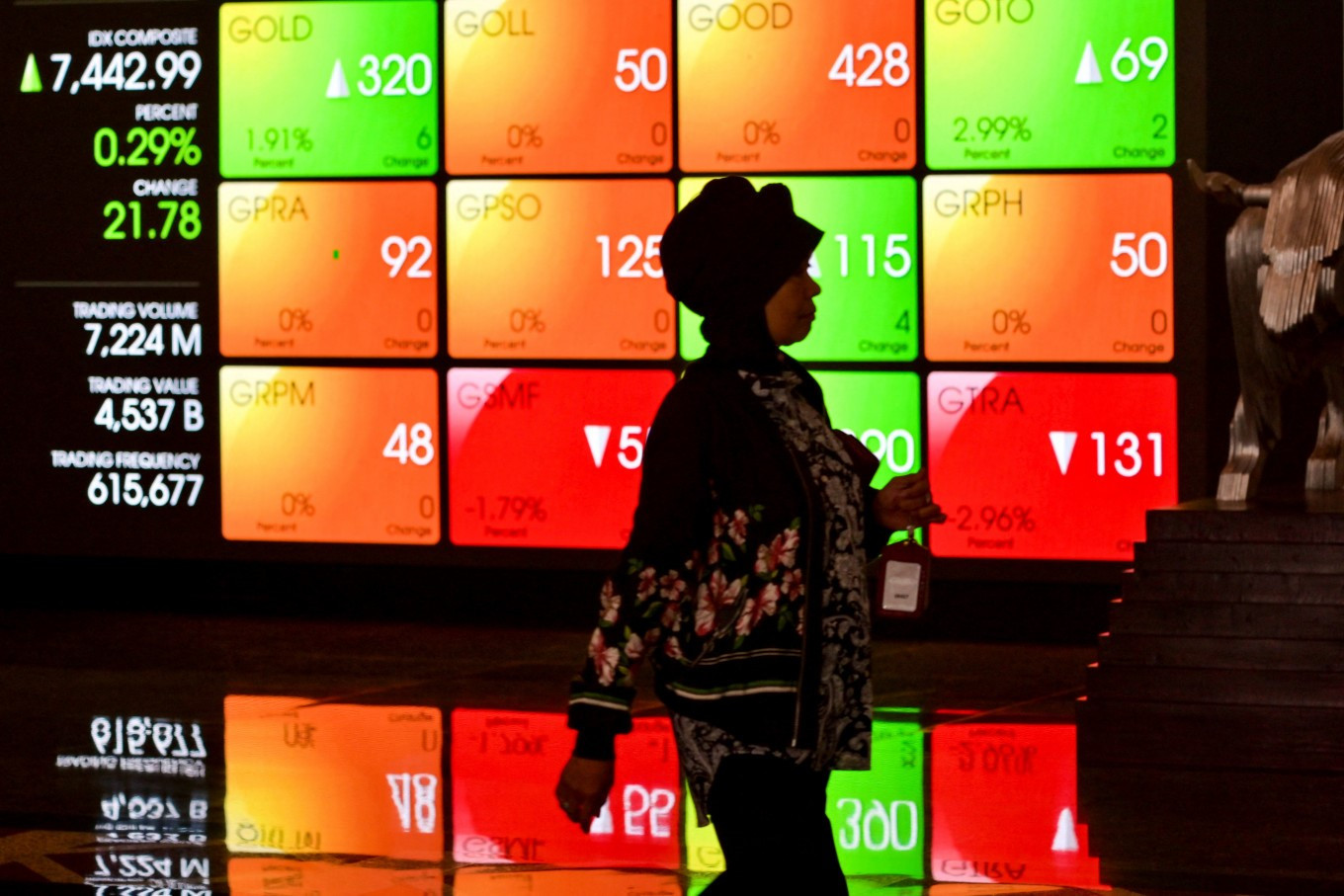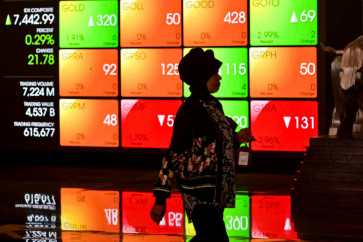Popular Reads
Top Results
Can't find what you're looking for?
View all search resultsPopular Reads
Top Results
Can't find what you're looking for?
View all search resultsAnalysis: Govt scrambles to sustain the market as JCI plunges to alarming low
The Indonesia Stock Exchange (IDX) imposed a 30-minute trading halt on Tuesday from 11:19 a.m. to 11:49 a.m.
Change text size
Gift Premium Articles
to Anyone
I
ndonesia’s financial market was thrown into turmoil when the Jakarta Composite Index (JCI) plunged 7 percent to 6,084 on March 18, marking one of its steepest declines in recent years. The market shock stems from growing economic uncertainty fueled by global and domestic issues, including the rumored resignation of Finance Minister Sri Mulyani, transparency concerns related to Daya Anagata Nusantara (Danantara), and a series of incompatible policies. The sharp sell-off underscores mounting fears over the country’s fiscal stability, with investor confidence hanging by a thread.
The Indonesia Stock Exchange (IDX) imposed a 30-minute trading halt on Tuesday from 11:19 a.m. to 11:49 a.m. The current market downturn closely mirrors the JCI correction on March 9, 2020, when the index fell 6.58 percent to 5,136 one week after the government announced the first domestic case of COVID-19.
This week’s downturn is closely tied to concerns about an economic slowdown and the rupiah’s depreciation. The currency has hit a five-year low, prompting Bank Indonesia to intervene in the foreign exchange market. These factors have heightened investor uncertainty, driving the JCI’s sharp decline.
Data suggests weakening consumer confidence and purchasing power, with the middle class facing mounting pressure from a decline in formal employment and a struggling manufacturing sector. Foreign investors who had been gradually withdrawing are now accelerating divestments, further destabilizing the rupiah and the bond market.
In a wave of heavy sell-offs, foreign investors recorded a net sell of Rp 2.57 trillion in regular market stock transactions. This selling pressure extended across all markets to reach Rp 2.49 trillion, with blue-chip stocks among the hardest hit. Foreign investors sold off shares in three major banks: PT Bank Central Asia (BBCA) with a net sell of Rp 1.52 trillion, PT Bank Mandiri (BMRI) with Rp 632.69 billion and PT Bank Rakyat Indonesia (BBRI) with Rp 353.78 billion.
Amid the chaos as the JCI plunged to 6.12 percent, House of Representatives Deputy Speaker Sufmi Dasco Ahmad, who is also executive chair of the Gerindra Party, made an urgent visit to the IDX to communicate concerns over the trading suspension.
Market instability has been further exacerbated by rumors surrounding Finance Minister Sri Mulyani’s potential resignation. A key figure in maintaining fiscal stability, her leadership has been instrumental in sustaining investor confidence. The government’s rising funding needs have increased the likelihood of additional government bond issuance. Also adding to market jitters are investor concerns over political interference and transparency at Danantara, the newly launched sovereign wealth fund overseeing major state-owned companies.



















